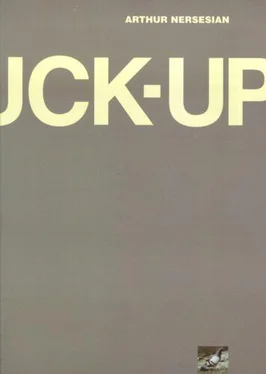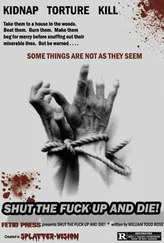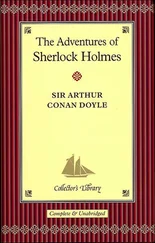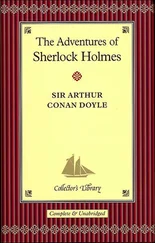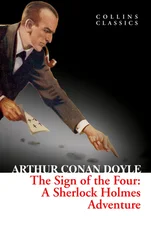It was an interesting phenomenon to sit and watch streets flood with people, sidewalks that were bone dry just an hour earlier. Time, now, was something for those who could use it. At night, I would go through the exit door in the subways. Occasionally a cop would catch me. But they never arrested; sometimes they’d hit me. Usually they’d just throw me back out, a fish too small to keep. Then I’d just go to another subway station and go through. Now and then, at night, a cop would expel me from the train. Usually though, I’d awaken in a train packed with scrubbed, well-dressed people swarming around me. Instantly I’d know that I was heading toward the city and that there was daylight above the tunnel.
Slowly the world seemed to be curving around my view of it. I kept hearing people screaming my name, a name that had outlived its purpose since no one knew it. My identity was my experiences. Everyday sights were turning into aberrations of a past breaking through; garbage in front of a lamp post resembled my grandmother from a half block away. I could’ve sworn that a discarded pile of newspaper was my old dog.
I avoidedthe cold, dark, and dangerous and adhered to the dry, warm, and lit. On the occasions when I misjudged the two I usually ended up incurring some form of pain. Even though diarrhea had set in and I’d gotten uncleanably filthy, the smell didn’t affect me. Ever since Junior’s pals had kicked my nose in, I barely smelled a thing. One night, though, I perceived this strange phantom odor of flesh decaying. I had a bad flea infestation and I had scratched my skin raw. Like a vegetable out of a fridge, I had started to rot. I had no preservatives, a poor shelf life. I was getting more sick, tired, dull, and pain was no longer even painful. Based on the fact that I didn’t know how I was going to turn out, I should have been either helped or executed. Death is the final shield from life.
I was moving away from myself; silly ideas and images moved their way across the desert of my mind. I no longer had control; all I could do was watch them and react; sometimes I’d laugh, sometimes I’d cry. The great caravan of thoughts passed more and more rarely until soon there was just the great desert: tabula rasa.
Life became a brutal continuum. The chronic fragments—the streets, the garbage cans, the crowds, the subways, the police—were all indicative of a life closing, sealing like an old scab. All the fragments were piecing together for a final kill.
I clearly remember the morning that time resumed. Weeks, maybe months, had crumbled since that party at the Harrington offices. I was snoozing on a bench in Grand Central Station until I was awakened by a cops night stick. The night stick wanted me to leave the terminal so I left and started walking westward.
Soon, I saw the great steps of the Public Library, and there I sat and watched the cars. I don’t know why, but at one interval, when the lights turned green, I walked into the center of the street and looked down Fifth Avenue. I suppose I wanted to see where all the cars were going. That’s when I saw the Washington Square Arch. As I watched cars speeding down Fifth Avenue, their roofs disappearing toward it, I realized that I was trying to picture the white hood of a car, a Mercedes! And that’s when I saw it, the resurrection of the dead and the life of the world to come, Amen. After being on the brink for so long, after the bland and aching season of decay, in that distant arch I wiped my watery eyes and focused on the glimmer that wasn’t death.
Moving more quickly and more determinedly than I had in weeks, I walked over to the IND station at Sixth and Forty-second Street, opened the exit gate, and entered. Soon an F train rolled in. I boarded and counted the stops: Thirty-fourth, Twenty-third, Fourteenth, West Fourth, Broadway-Lafayette, Second Avenue…. Here a cop boarded and looked at me. If he was a good cop he’d have tossed me off. I sat up stiff and formal trying to give the impression of having a destination. He got off at Jay Street and two stops later, at Carroll Street, before the train came to a halt I got up.
My feet were numb as I walked down that platform, but I couldn’t stop the smile from my lips. For the first time in weeks, even years, every step had a meaning. Time and space were now finite. I was walking the shortest distance between two points. When I got up the stairs, I could see it in the distance and I could feel the relief. Sensations were beginning to return. I thought about these last couple of years. I had washed ashore here, formed a tiny beachhead for myself, and for an instant felt like I had a shot at the big time: an opportunity to get published, a classy abode, even part ownership of my own business. But swifter than it came, it went. Like a cockroach on water, I had floated on my spindly arms and legs in the giant toilet bowl of New York.
I was only a block away now and I started chuckling. When I had parked the Mercedes there, it was the day after Helmsley’s wake.
During his last few years, he moved away from literature and more and more toward history. When I asked him about this interest, he replied that when he got old and turned senile his memories might fuse with this vast bank of historical data and the history of the world would seem like his own personal past. I felt somewhat senile as I walked to my Mercedes. Glenn’s son still wanted to mutilate me; Ox would probably toss me in the same jail cell with Miguel, if Miguel was in jail; Ternevsky would try to have me castrated.
I could see the car on the corner. Then I realized that I no longer had the key, but I knew how to hotwire engines.
And then like the Cheshire Cat the hope vaporized leaving only a mocking grin. I realized that this wasn’t the car. I looked around and down the street. My last chance had vanished into itself like a snail coiling up into his shell.
Insidiously I had lost my grip, and now this was it. I thought all this without much emotion. I really didn’t care anymore. I couldn’t hang on anymore. I didn’t have the guts to kill myself, but I didn’t want it to continue. I walked a couple of blocks, empty, listless, and wished I could cry. I wandered through the neighborhood.
The religion of the car—the diabolic hope, the purposeful pulsing of blood, the flight into coherence—allowed for some rationalizing an afterlife. A new theology was evolving, one that had a faith-in-death clause. It was evolved when I kicked a dead waterbug on the pavement. It was dried out, hollowed, emptied, like some kind of shell. Maybe, I thought, its body is a shell, maybe all bodies are shells. We hatch and die. Our spirit or something like that is the yolk: it lives the real life, the true life. It wasn’t comforting. The car would have been better.
“Spare any change?” I asked one guy who looked as if he could. He ignored me. I asked another guy, who walked by more quickly. And then another and another and another and so on.
“Get a fucking job, you bum,” an apelike man said to me.
“I’m… not well,” I replied meekly, unstably. But then some gear locked into place and I started yelling back, “I got nothing to lose. I could do anything I want to you, and the worst that you think you can do to me can only be better than what I’m going through now. I got nothing to lose, nothing…”
I walked some more, and I guess the light got dimmer, but it was still day; time wasn’t going anywhere. I felt very tired and I went into a doorway and dropped to my knees and instinctively looked out for cops and foot-stomping kids. I saw cars and legs and sniffing dogs. My eyes trailed up a street pole. It was Sackett Street. What difference did it make? It could have been Mahoegushmoegel Street, and so what? And I laughed at that.
Читать дальше
